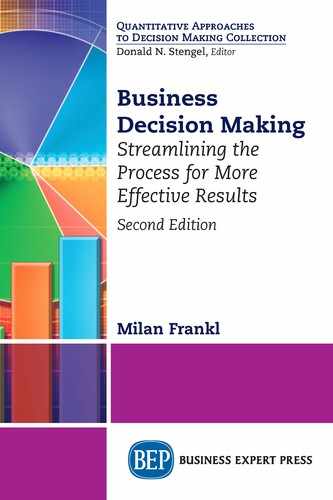Introduction
When I retired the third time from active business, after my company was taken over by an American competitor, my friend asked, “What are you going to do now?”
“I am going to teach,” I answered without blinking. I always liked teaching. During my early career days as a management consultant, I dedicated most of my free time to teaching at the University of Montreal’s School of Business (Haute Études Commerciales) and the University of Sherbrooke’s Faculty of Science. The university scheduled some of my classes during the weekends or in the evenings so that they would coincide with my “free” time. My classes were always full. I guess my students also appreciated the learning that was taking place.
As a life-long learner myself, I recognize that today’s readers expect to relate to the material presented to them as readily useful for day-to-day application of their newly acquired skills. Readers are strongly motivated to learn what they believe they need to know.
Therefore, I prefer to use an inductive writing method. Instead of merely writing like a “drone on the throne” and introducing some general principles, I developed case-based examples built on observations and experimental data. This way, my readers would be better prepared to solve real-world problems.
I encourage readers to find their own solutions to their business problems—since often different, but valid, solutions might apply to any given business situation. In this context, the writer acts more as a facilitator rather than a transmitter of information. The reading process becomes a journey both parties embark upon; each reaches the destination most appropriate to his or her specific needs.
Inductive writing can include a variety of methods based on inquiry, problem solving, case analysis or exploration, and discovery. Consequently, I ensure that each reading session gives readers access to a variety of topics that may reflect their various styles and preferences.
I have decided to share with my readers the adventures and tribulations I went through during my executive management years. I describe both the errors I have made as a consequence of my lack of experience in the early days of my entrepreneurial ventures as a young executive and more mature decisions (not necessary always better) I made later on during my business career as a more seasoned executive.
I believe that one can learn more from one’s mistakes than from one’s successes, of course, as long as one does not repeat the same mistakes too often.
I have omitted naming the companies involved and modified all the names of the people implicated to respect their privacy because all the vignettes and life stories described in this book have happened to some of my colleagues and me in various business situations.
